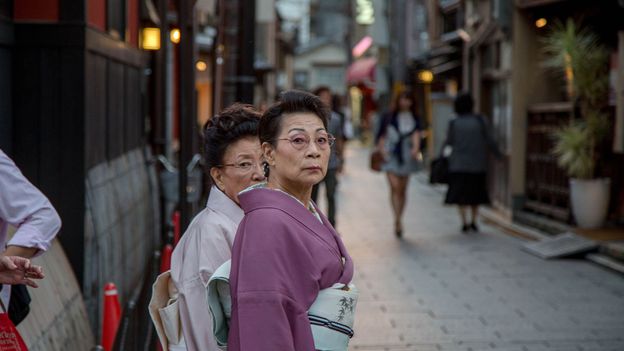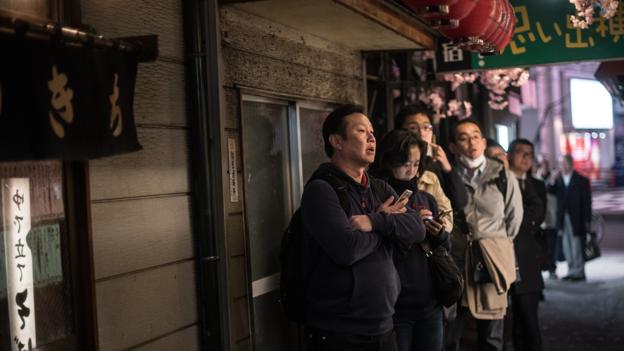But today the lifetime employment system is breaking down, people are marrying later, more women are working and the birthrate is at its lowest level in history. Many young people work on temporary contracts or in part-time jobs where gaman counts for nothing.
“They’re not looking at you as an intrinsic member of the group. You’re hired and fired, you have a contract, you’re paid by the hour,” says Slater. “The whole idea of gaman-ing here is completely maladaptive. You’ll keep your job by shutting up, but all the taught values of gaman that make sense for coherent and enduring social relationships no longer make sense.”
And some young people are choosing not to gaman, shunning the paths taken by previous generations. Mami Matsunaga, 39, worked in fashion media before swapping Tokyo for the beach. She now surfs every day and teaches mindfulness, breathing and yoga at retreats and workshops around Japan.
“In Japanese culture, the expectation for gaman puts pressure on everyone to do the same and leaves little room for difference,” says Matsunaga. Asked if she ever persevered at work, she answers: “Nope, I didn’t. I soon left the job if anything like that needed to happen.”
—
To comment on this story or anything else you have seen on BBC Capital, please head over to our Facebook page or message us on Twitter.
If you liked this story, sign up for the weekly bbc.com features newsletter called “If You Only Read 6 Things This Week”. A handpicked selection of stories from BBC Future, Culture, Capital and Travel, delivered to your inbox every Friday.













